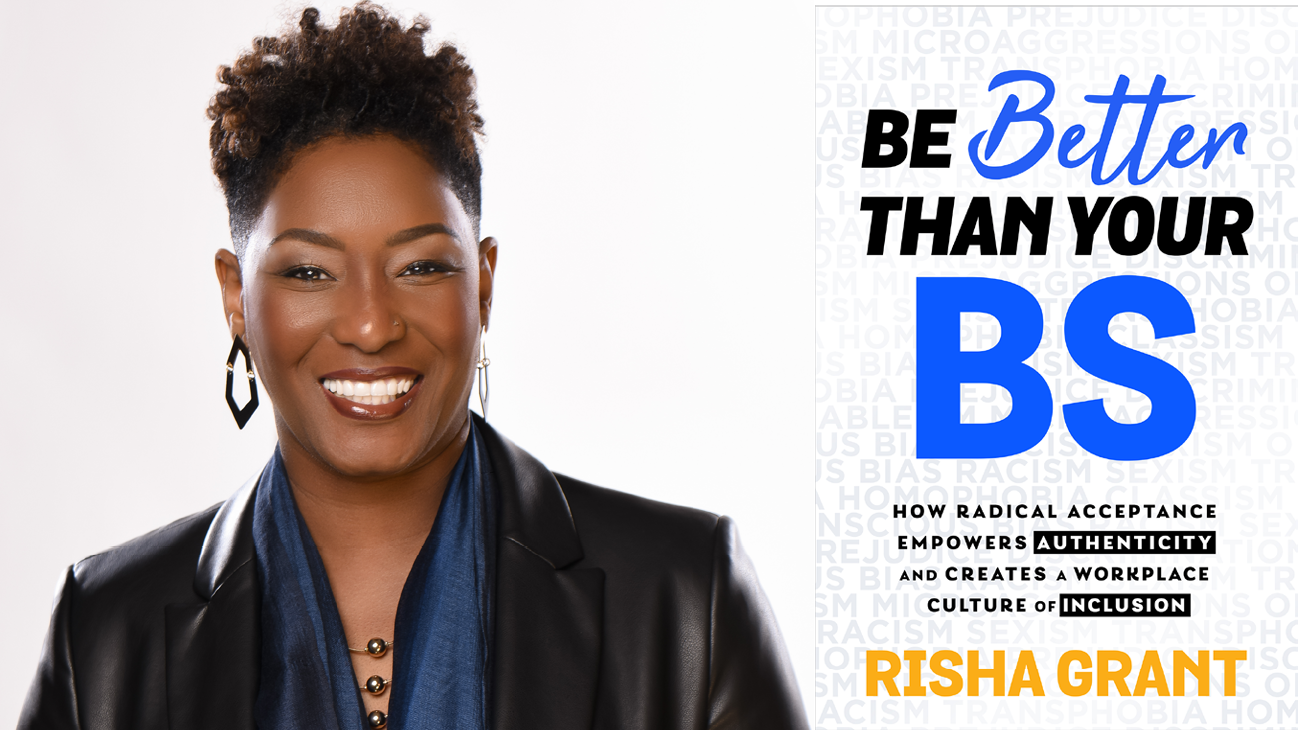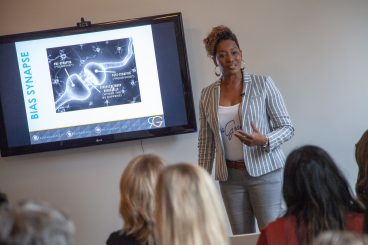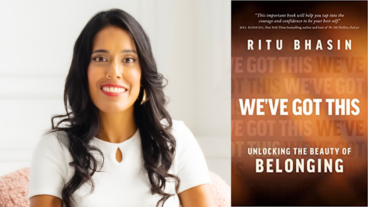In her latest book, award-winning DEI consultant Risha Grant shows leaders and employees alike how to create cultures of inclusion in their workplaces.
Risha is an internationally renowned diversity, inclusion, and bias expert. Motivated by her passion to correct societal “isms” like racism, sexism, and classism, her personal mission is to show the subtleties and values of DEI work and the impact it creates in the spaces we live and work.
Be Better Than Your BS: How Radical Acceptance Empowers Authenticity and Creates a Workplace Culture of Inclusion is Risha’s second book. She draws on her 25 years of experience in the DEI space to explore the inner work and the outer work we need to do to dismantle our “biasphere”, or “BS”, and change how we see ourselves and interact with each other. The more people are willing to acknowledge and address the biases inherent in their belief systems, Risha says, the more those biases will dissipate and the better our work environments will become.
In the lead-up to her book’s release on August 15, Risha joined the news show, Afternoon Live, to share insight into her new book and her work in helping others create more inclusive spaces.
The following interview has been edited for clarity and length.
AL: When it comes to DEI, what are we missing the most?
RG: Humanity. We’re missing humanity. There are people out there who don’t feel accepted for who they are. The worse thing we can do to each other is to make people feel invisible, to make them feel they’re not heard and that they don’t have a voice. There are too many people out there experiencing that every day, especially at work.
AL: We’ve all heard of the term “unconscious bias”, what does it mean to you and how have you seen it in effect?
RG: I like to think of unconscious bias as an unrecognizable part of our upbringing. We’re living through the past, hurts, pains, and experiences of the people who raised us. They experienced things that they didn’t want their kids and grandkids to experience so they taught us through the lens of “us vs. them” or “this happened to me” so you too have to be careful or weary of a person based on their race, sexuality, religion, etc.
These are the barriers unconscious bias refers to. We’ve learned to see people based on the pain they’ve caused us, and instead of billing that pain to a specific person, we’re applying it to the entire group that we think they belong too.
AL: Can you clarify how it’s a person’s individual responsibility to get rid of their BS?
RG: If we are more self-aware of how we show up for each other, we will do a better job of treating each other well.
Think about when you get in an elevator and a certain person joins you, what does that person look like? What kind of person would make you shrink in that elevator and pull your personal items in closer? If you can recognize that level of discomfort that you feel, you can make a different behavioural decision in that moment. That can be something as simple as smiling or asking how someone’s day is. That simple act helps break down the barrier you’ve created between yourself and that person, and it makes them feel comfortable as well.
AL: In your book, you outline ways people can build more inclusive workplaces. What are some strategies people can incorporate?
RG: It starts with actually speaking with people, engaging with your co-workers. I hear people saying all the time that nobody speaks in their office, nobody says hello. When you’re in a work environment, those simple actions, or inactions in this case, can make people feel ostracized — like they aren’t part of the group.
There may be times when a whole department gets together for lunch, and they keep forgetting one person. Maybe it’s truly an oversight but if that person is someone who falls in a diverse category, it leads them to think that it has something to do with who they are as a person.
Inclusion is about making sure people feel involved and engaged. We all have responsibility to help people feel that way because that’s when all the creativity is brought to the table. It’s going to help with sales, it’s going to help with morale, it’s going to help each of your individual teammates feel like they’re a part of the team. When and that’s where you see it all gel and come together.
In her no-holds-barred style, Risha Grant’s keynote presentations teach audiences about unconscious bias, micro-aggressions, and other actions that perpetuate discrimination and inequality, and empowers them to foster more inclusive spaces, both at home and work.
Contact us to learn more about Risha and to book her for your next event.




